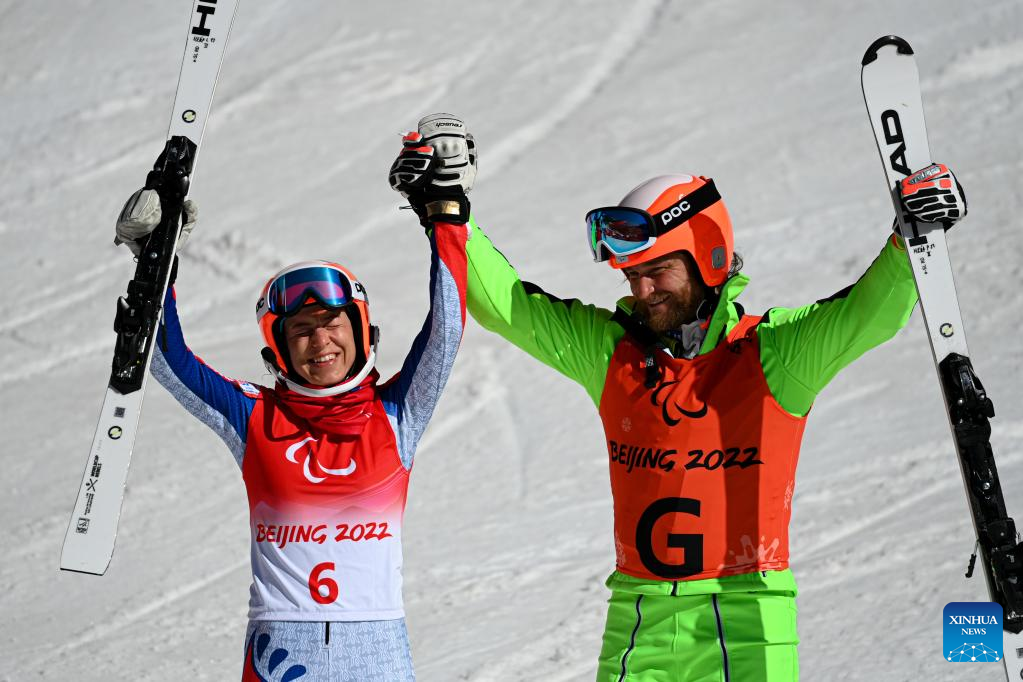Farkasova wins her 11th Winter Paralympic gold in Beijing
 0 Comment(s)
0 Comment(s) Print
Print E-mail Xinhua, March 8, 2022
E-mail Xinhua, March 8, 2022

Slovakian legend Henrieta Farkasova brought her collection of Winter Paralympic gold medals to 11 after claiming the women's super combined vision impaired on Monday.
The 36-year-old, who finished 1.92 seconds behind Chinese skier Zhu Daqing in the super-G event, fought back in the slalom, clocking a time of two minutes and 3.39 seconds over two legs to win the gold.
Zhu made a mistake in the slalom and finished 0.86 seconds behind Farkasova.
"It's a big disappointment as I have prepared for this race for a very long time," Zhu said, adding that a prior head injury she suffered led to a lapse of concentration in the slalom.
"Before I came to the Games, I was sent to the hospital to receive treatment on my head after falling badly in a training session. I was left in a coma for over two hours from that fall," Zhu said.
"I had another knock on my head in an official training the day before the Games began. As a result, I suddenly felt dizzy at races," she added.
Her teammate Zhang Mengqiu also had to settle for silver in the women's super combined standing after Ebba Aarsjoe of Sweden staged a powerful comeback in the slalom.
Aarsjoe, who finished 2.25 seconds behind leader Zhang in the super-G, did well in the slalom and won the title with a total time of 1:56.51, 1.51 seconds clear of Zhang.
The women's super-G combined sitting gold was taken by Anna-Lena Forster of Germany. Japanese skier Momoka Muraoka, who won two golds over the past two days, finished second.
In the men's super combined events on Monday, Giacomo Bertagnolli of Italy claimed the vision impaired title, and French racer Arthur Bauchet won the standing gold, while Jesper Pedersen of Norway finished first in the sitting event.





